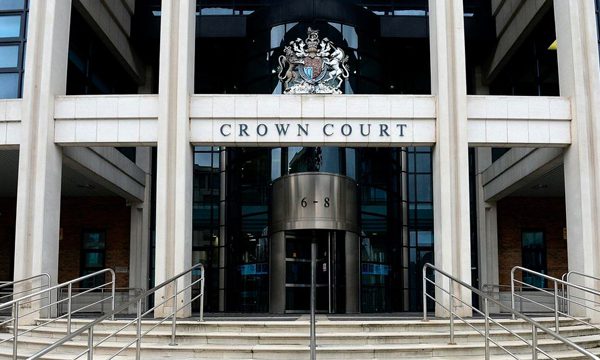Assault Defence Solicitors in Southampton
“Absolutely happy to contact Leonard Solicitors LLP. Appointments made easily, reaching them fast and everything was dealt with professionally.”

Criminal Defence Solicitors for Assault Charges
If you are under investigation or have been charged with assault of another person you must seek legal advice and representation as soon as possible. Speaking to the police, informally and under caution can later harm your defence if are not prepared and subsequently charged. Seeking legal advice does not signify your guilt, but does allow you to be informed before entering questioning.
We have a duty solicitor and other police station accredited representatives on hand 7 days a week. Call the office on 023 8023 4433 during office hours or when you are at the police station, ask for Sarah Barnard, our Criminal Defence and Duty Solicitor.
Covering Legal Expenses
Police station interviews and advice is free and is covered under our duty solicitor contract. We also provide legal aid under our contract with the Legal Aid Agency. We will explore legal aid with you if your matter progresses and are later charged with an offence. It’s important to note that not all offences are covered under legal aid and is often granted depending on your financial circumstances. Our team in the Crime Department will advise you on whether you are entitled to legal aid during your initial consultation.
General Information around Assault Charges
When a person is charged with assault, the law in England and Wales describes the charge under various types:
- Common Assault
- Assault on a Police Officer
- Assault on an Emergency Worker
- Actual Bodily Harm
- Grievous Bodily Harm
Common Assault
Common assault is the least serious form of assault that covers anything from threats to actually inflicting harm towards another, but no injury was caused. The maximum sentence for a single charge of common assault is 6 months in prison. However, where an offence is racially or religiously aggravated, the sentence can be increased to a maximum of 2 years imprisonment.
Assault on a Police Officer
An assault on a police officer who is exercising his or her duty is effectively classed as a common assault, depending on any injury. However, assaults on police officer’s are routinely punished higher than on a member of the public. In terms of criminal defence, it could be argued that the officer was not acting on duty, where the officer may have exceeded his or her authority.
Assault on an Emergency Worker
Assaults on Paramedics, Firefighters and Police Officers or otherwise known as Emergency Workers are again common assaults. These cases are usually dealt with at the Crown Court, carrying up to one year imprisonment if convicted. An assault on a police officer is sometimes charged as an assault on an emergency worker, only the sentence is harsher.
Actual Bodily Harm
ABH is a form of common assault where the victim suffers an injury intended to cause discomfort to the victim for a longer period. ABH can be both physical and psychological, with a sentence of up to five years imprisonment unless racially or religiously motivated, where the sentence can increase up to seven years if convicted. There are ways of reducing sentences for this crime where injuries are in doubt and the prosecutor accepts a guilty plea to common assault.
Grievous Bodily Harm
GBH is committed to wounding a person. Often, but not always, GBH is committed by the use of a weapon such as a knife, baseball bat or a gun causing the victim’s skin to break and draw blood. The prosecutor doesn’t need to show that the damage will have lasting consequences for the victim. GBH comes under 2 different sections of the Offences Against The Person Act 1861.
Section 20 involves the assailant inflicting injury without the intention of causing that injury. Provided that the assailant is convicted, the sentence for GBH under section 20 is a maximum of 5 years imprisonment or up to 7 years if motivated by race or religion.
Section 18 involves the assailant inflicting injury with the intent of causing that injury. Provided that the assailant is convicted, the offence carries a maximum sentence of life imprisonment.
Based on evidence and the alleged victim pressing charges, you will either be charged, cautioned, placed on summons or bail.
Should you be charged for an alleged offence, we will prepare your case and represent you in court. We have a great reputation for reducing penalties and charges to those accused of assault in the Southampton area.
Appeals
If you were convicted at the Magistrates Court, your appeal will generally be made in the Crown Court. The appeal is presented to a Crown Court Judge with two Magistrates and no jury. In certain limited circumstances, an appeal from the Magistrates Court can be made to the High Court. An appeal to the Crown Court must generally be made within 21 days of the sentence. In some circumstances, this time limit can be extended.
If you were convicted at the Crown Court, your appeal is made to the Court of Appeal. An appeal to the Court of Appeal can only be pursued if you can establish that there was an error of law at the original Crown Court trial. An appeal to the Court of Appeal must generally be made within 28 days of conviction or sentence, whichever is being appealed. In some circumstances, this time limit can be extended. Where a Crown Court judge has made a sentencing error, this can be corrected by the Crown Court itself, within 56 days.
FAQ’s
Can I be charged with common assault if no injury was caused?
Yes – common assault can also be verbal. Even simple gestures or threats can be considered as common assault, although charges for this will be less serious than if you had physically assaulted the person.
What will happen at the Police Station if I am under arrest?
Good question. We have already prepared an article on what you can expect at the police station when you are under arrest here.
What defence is there available to me for assault charges?
You should take legal advice on any specific availability of a defence. The most common defence however in assault cases is self-defence. This, of course, depends on a number of factors leading to the assault you are charged with. Alternatively, you may have defended another.
In cases where the assault was part of a group, you may want to plea that you didn’t take part but was too scared to stop the attack.
Mistaken identity is another possible defence for assault charges, especially where the alleged assault took place in poorly lit conditions.
Related pages
Sexual Offences
Theft & Burglary
Criminal Damage
Fraud & Forgery
At your service
FAQ’s
Can I be charged with common assault if no injury was caused?
Yes – common assault can also be verbal. Even simple gestures or threats can be considered as common assault, although charges for this will be less serious than if you had physically assaulted the person.
What will happen at the Police Station if I am under arrest?
Good question. We have already prepared an article on what you can expect at the police station when you are under arrest here.
What defence is there available to me for assault charges?
You should take legal advice on any specific availability of a defence. The most common defence however in assault cases is self-defence. This, of course, depends on a number of factors leading to the assault you are charged with. Alternatively, you may have defended another.
In cases where the assault was part of a group, you may want to plea that you didn’t take part but was too scared to stop the attack.
Mistaken identity is another possible defence for assault charges, especially where the alleged assault took place in poorly lit conditions.







